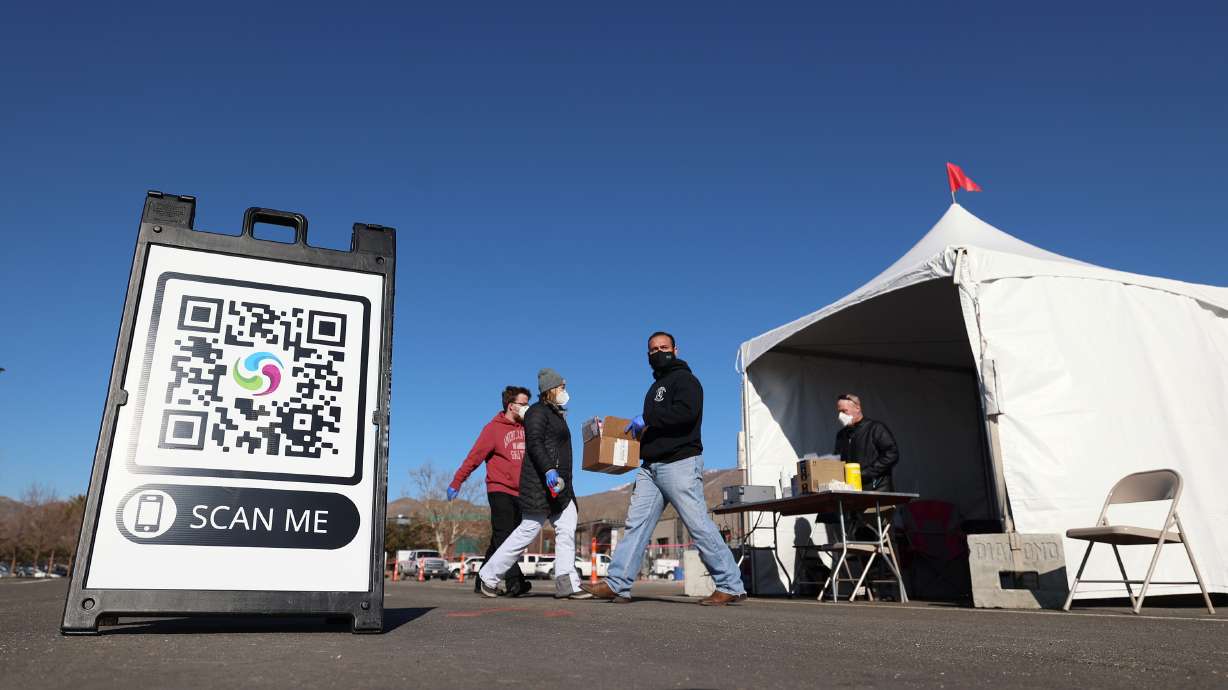Estimated read time: 5-6 minutes
This archived news story is available only for your personal, non-commercial use. Information in the story may be outdated or superseded by additional information. Reading or replaying the story in its archived form does not constitute a republication of the story.
SALT LAKE CITY — Individuals without any history of anxiety or depression are seeking mental health support as the COVID-19 pandemic continues, now with prevalence due to the omicron variant.
Dr. Kirstin Francis, a psychiatrist at the Huntsman Mental Health Institute, said that the feelings people are going through are normal, especially during this long, unprecedented pandemic. She said that seeking support and help is a sign of strength, not weakness.
"You know it's time when it's really impacting your life: your mood is getting in the way of your life, your habits are getting in the way for life, your relationships are suffering, maybe your work is suffering. ... We want you to seek help," Francis said Thursday.
Utah health officials reported 3,482 new COVID-19 cases and 10 deaths on Thursday as the percent of positive tests continues to slowly decline each day.
Currently, 41.4% of the COVID-19 tests are positive, and the seven-day rolling average of positive tests is at 3,774 per day.
Francis said seeking help doesn't mean committing to seeing a therapist for years, but that quick intervention and acknowledging the need for help goes a long way.
"What we know about mental health is if you don't address it, if you don't get help and support early on, then you are more likely to have experiences of depression, anxiety or mental illness in general over time. So, we can lessen that with early intervention sometimes mitigate it completely," Francis said.
Francis said mental health care workers are seeing an increasing number of people who are feeling negative feelings, including apathy, as COVID-19 numbers and responses have become more prevalent during the omicron variant. She also said that they have seen a lot of people who are dealing with grief and anxiety and fear about the future.
She said the Huntsman Institute is seeing higher rates of major depressive disorder, recurrence, anxiety disorders, post-traumatic stress disorders, and substance use disorder. This is in addition to increased instances of child abuse and intimate partner violence, which also occurs more after traumatic experiences.
"People's lives have changed. Their livelihoods are different, their homes look different, kids are being schooled in a different way. So a lot of ... just feeling overwhelmed," Francis said.
She encouraged people to check how they are feeling, notice any changes, and make sure that they are feeling things like happiness, enjoyment, a desire for connection and a purpose. People should also consider if they are eating differently or using more substances to cope with their emotions. Francis said if people are not able to feel happiness and purpose, they should realize that something is wrong.
To address negative feelings, Francis suggested people move their bodies, go outside in the sun, get restful sleep, make sure food is giving them enjoyment and nourishment, and be mindful about the impact of mood-altering substances on overall health.
Teague Cowley, a psychology resident at the Huntsman Institute, said resiliency is the ability to bounce back from difficult experiences, not avoiding or minimizing them.
"Understanding resiliency is really critical as we as a society ... sustain ourselves through the pandemic," Cowley said.
For people who are working in the medical field, Cowley said the pandemic can be complicated because they have to focus on being able to continually provide health services while worrying about protecting their families. He said they need to have somewhere to turn when they are struggling.
Francis said human bodies are not meant for the type of exhaustion and emotional fatigue that health care workers are currently facing and are not equipped to deal with stress for that long. She said a lot of people have been reaching out for urgent consults. She also said that health care workers talking to each other and vocalizing their experiences, getting validation, can bring relief.
Some suggestions from Cowley for people who are struggling with their emotions include recognizing and accepting emotions, mindfulness, volunteering, social interactions, avoiding negativity and self-care.
"I think often the best thing we can do is make sure that we focus on today and make sure that today is as best as today can be, and we focus on making sure tomorrow can be the best it can be," Cowley said.
Thursday COVID-19 numbers
School children account for 455 of the 3,482 new COVID-19 cases reported Thursday. Of those cases, 208 were children between ages 5 and 10, 108 were ages 11-13, and 139 were ages 14-17.
The health department reported another 9,015 people tested since Wednesday's report.
Currently, 787 people are hospitalized in the state with COVID-19, with 196 individuals in intensive care. Since the beginning of the outbreak there have been 31,682 total hospitalizations in Utah, the health department reports.
About 61.1% of hospital beds are in use, up from 57.3% on Wednesday. ICUs are also more full than the previous day's report, with 91.9% of ICU beds, and 96.1% of ICU referral beds.
Two of the deaths reported Thursday occurred before the start of 2022. The new deaths include:
- A Millard County man between the ages of 65 and 84, unknown if hospitalized.
- A Salt Lake County man, 25-44, unknown if hospitalized.
- Two Salt Lake County men, 45-64, both hospitalized.
- A Salt Lake County man 65-84, hospitalized.
- A Salt Lake County man, 65-84, unknown if hospitalized.
- A Utah County man, over 85, hospitalized.
- A Washington County man, 45-64, not hospitalized.
- A Washington County man, 65-84, hospitalized.
- A Weber County man, 65-84, unknown if hospitalized.









